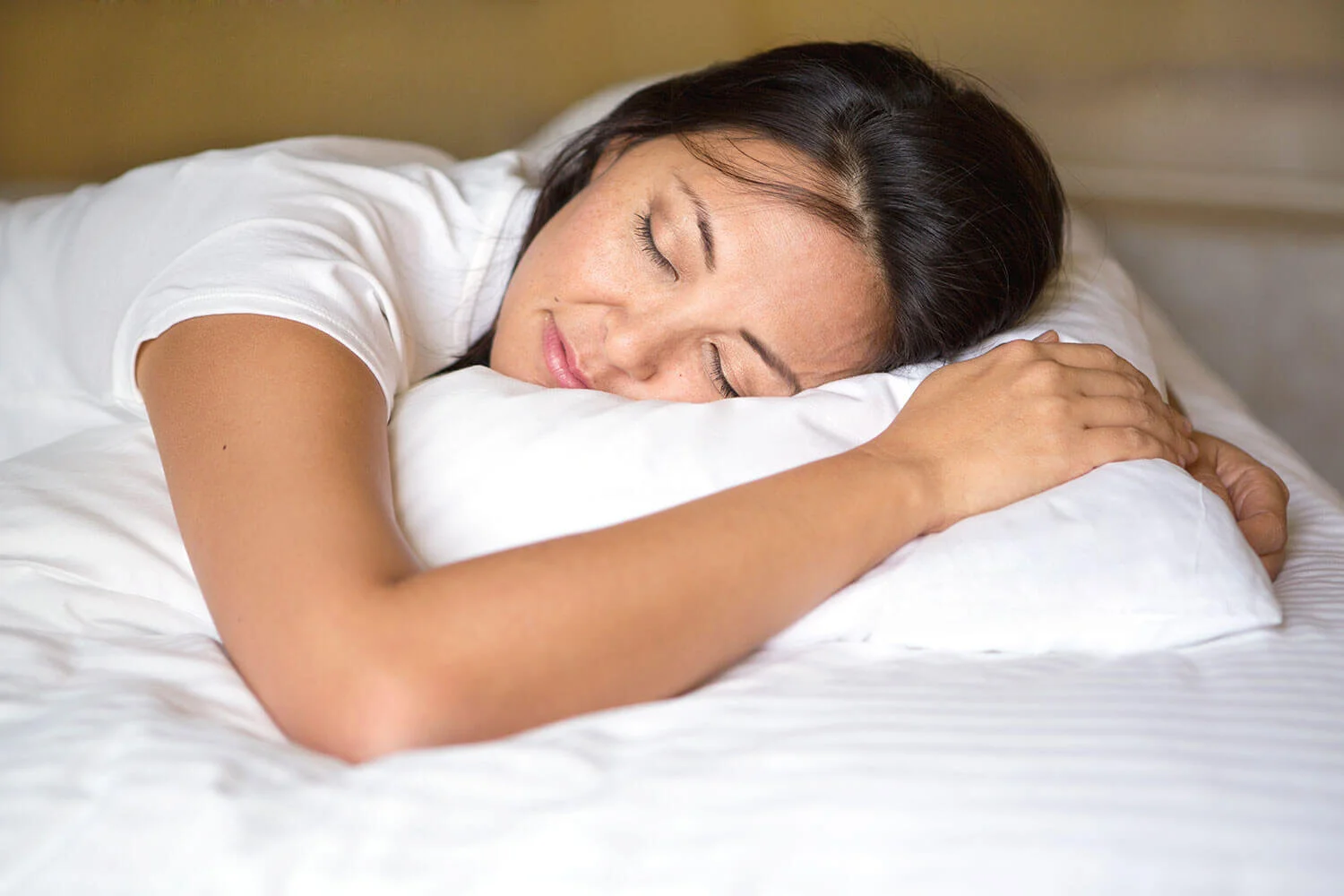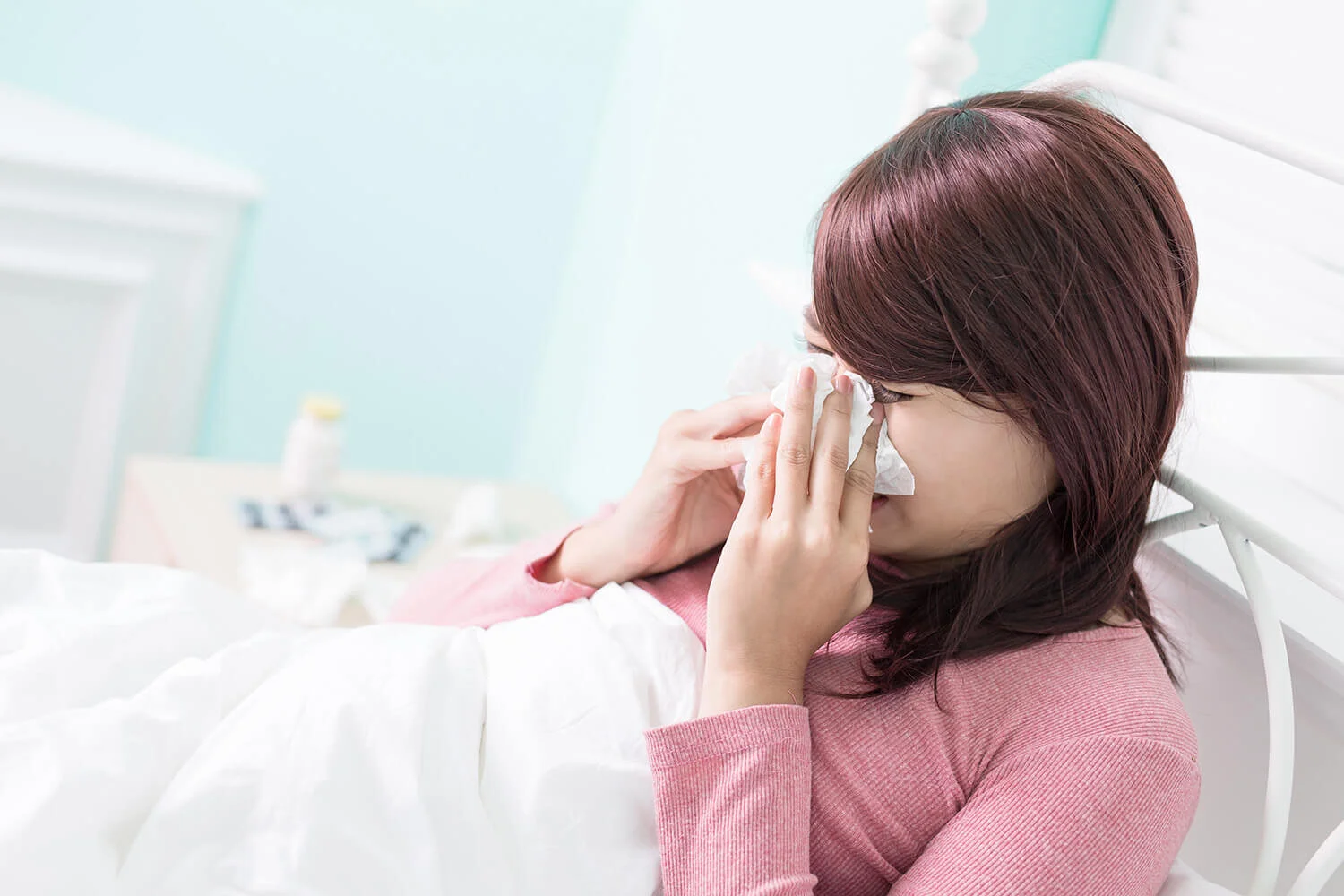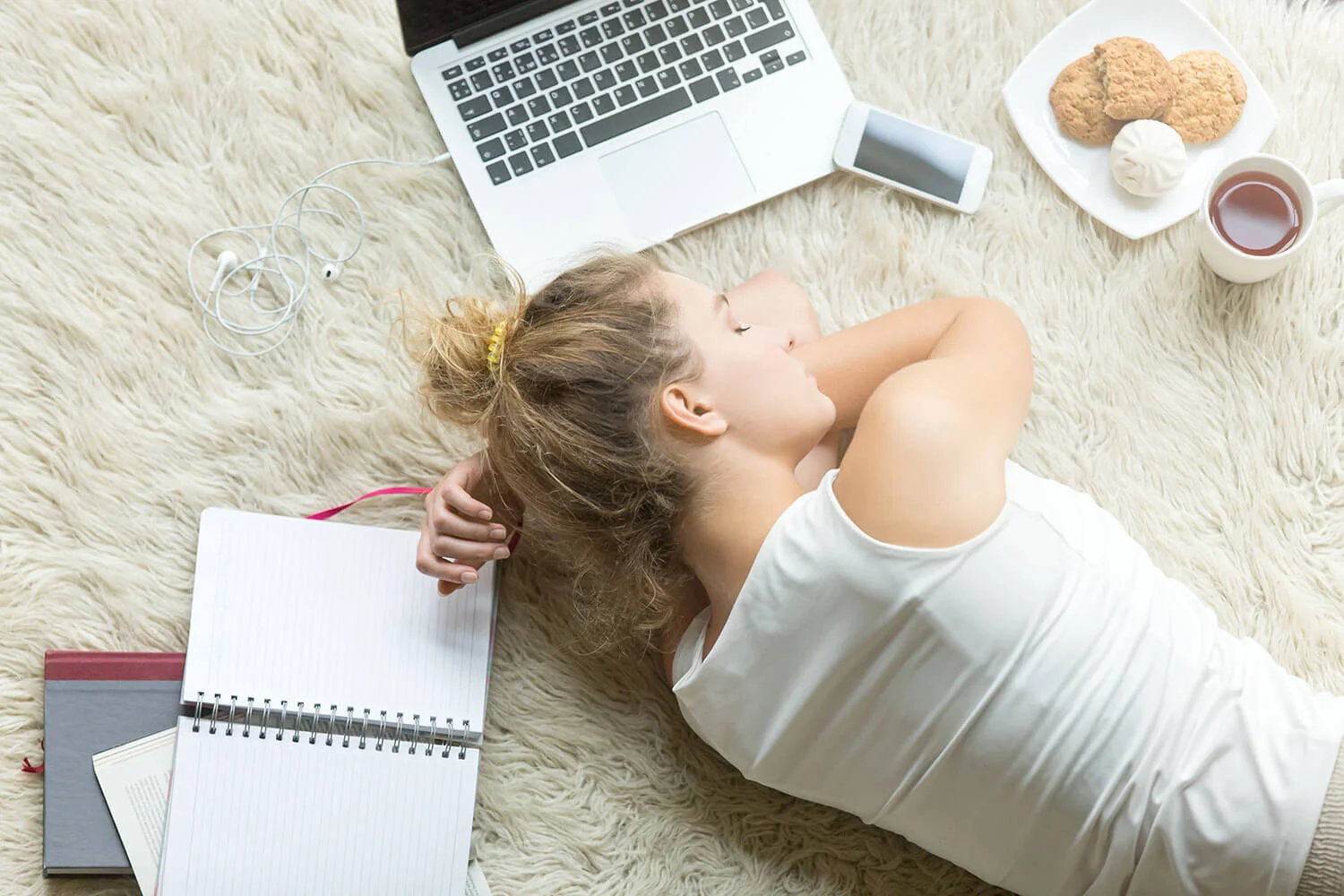Getting enough sleep at night can be much more difficult than it seems. However, by making the effort to get at least 7-9 hours of sleep per night can go a long way in helping you look and feel your best. Remember, if you are struggling with fatigue, weight gain, dark circles, or any other number of different health issues and feel you are not getting enough sleep at night—making this type of positive change can go a long way in helping you get and stay healthy. We all lead busy lives and all feel as though we don’t have any extra time to spare, but if you can make more room for quality sleep, you surely will love all of the benefits that it brings.
Read moreAllergy season starts way sooner than you think. Just because you have allergies doesn’t mean you have to put up with the symptoms. Sure, you might have to clean more and make a few purchases, but you’ll be able to manage your allergies much better. If anything, a combination of non-prescription medication, regular cleaning, a mattress protector and managing the air quality in your home with a HEPA filter can pretty much remove almost all allergens.
Read moreIf you suffer from allergies, you shouldn’t have to suffer from insomnia, too. Missing sleep can make it harder for you to recover from other illnesses and even just to go about your daily business. Consider these tips for better sleep and overall health, and with time you will find that coping with seasonal allergies relief in the right way can promote better, more restorative sleep.
Read moreThe only individuals that should be warned against using a fan at night are those who could see their health suffer as a result. If allergies or asthma are flaring up and the tips above aren’t correcting the problem, sleeping with a fan on could be the problem. For most people, there is no danger in sleeping with a fan on at night. Choosing the right fan, keeping the room clean, and keeping moisture in the air can create a more comfortable and serene environment to help you sleep peacefully all night.
Read moreUnderstanding your sleep cycles and what happens when you fall out of those sleep cycles is an important part of understanding your own sleep patterns and habits. If you feel as though you aren’t getting enough sleep at night, or the sleep that you are getting isn’t leaving you feeling rested and restored—you may want to talk to a doctor or sleep specialist. They can help track your sleep cycle and determine if there is something that is getting in the way of you getting that restorative sleep that you need.
Read moreWhether you are a night owl or an early bird, your sleep-wake cycle is something that is genetically pre-dispositioned. You are born into an environment where your sleep cycle and even your evolution as a human being was influenced by a 24-hour light cycle. While circadian rhythm isn’t something that’s super difficult to understand, it can be tricky to determine which factors are throwing off your particular circadian rhythm. You will need to do some work in order to understand which factors affect your own cycle - and how you can get them back in check.
Read moreIf you are struggling to get enough quality sleep at college, keep these safe and natural tips in mind. If you are diligent, they can go a long way in helping you change your sleep habits for the better so you can get the quality rest you need to do your best at college. If you take these tips to heart and still are struggling to get enough sleep, then it may be time for you to contact your doctor. They can help provide you with the professional advice that you need to start getting the sleep you are looking for.
Read moreFor athletes, sleep quality is one of the most integral parts of training that is so often overlooked. A good sleep regiment leads to better performance and less injuries as sleep helps heal the body from the day’s stresses. For many elite athletes, sleep can often be elusive as strenuous training can often have the opposite effect normal exercise has on people who are not athletes. That along with increased stress is a recipe for sleep deprivation. Luckily, it seems like more trainers and athletes are seeing the benefits of getting more sleep. While it might be harder to maintain a consistent sleep schedule, especially for international athletes who will travel through multiple time zones, it’s not impossible. Some top tier athletes and coaches have started incorporating sleep hygiene practices in their training as well as relaxation techniques such as meditation to help improve overall sleep quality.
Read moreSleep is essential to good health. Whether you’re a weekend warrior or the best pro basketball player in the country or just athletic, you need to clock a solid, uninterrupted eight hours in order to stay healthy. While the adverse effects of too-little sleep are well-documented and dramatically amplified for professional athletes (after all, they rely on their bodies to make a living for them), sleep is important for you, too. Sticking to a good, regular sleep routine is one of the best things you can do to improve your sleep performance and improve your overall health. Don’t assume that your sleep doesn’t matter as much just because you aren’t what one of the pros. Instead, prioritize your sleep like you would your job, and you’ll reap the benefits almost immediately.
Read moreWe spend a lot of our lives sleeping. In fact, the average adult will spend about 1/3 of their life asleep, so it is very refreshing to know that during that time we aren’t just “shutting off” we may be learning while we sleep. Our brains are doing a great deal including how we function and learn. While we may not technically be learning something brand new from scratch, we are still processing information while we rest.
Read morePoor sleep is a public health issue around the world. Thanks to increasing distractions and the need to be on call at work 24/7, people are getting less and less sleep. Add onto that additional stress from world events and you have a recipe for a sleep deprived population.
While milk can potentially help you sleep better, there’s no guarantee it will work. However, if you don’t suffer from lactose or glucose intolerance, it’s worth trying it out to see if there’s an effect on your sleep cycle. Make sure to stick with it for at least a month as you won’t see results immediately. If you find that milk doesn’t help, pursue other options such as some tea or maybe taking some melatonin supplements.
Read moreIf you’ve been suffering from uncontrollable eye twitching, it’s important that you chat with your eye doctor. Not only could a very simple cause be at the root of this annoying symptom, but sometimes eye twitching can be linked to more serious conditions. You should seek emergency care if your eye twitching is persistent or if you have sudden changes in the movement or appearance of half your face. The same goes for if your eyelids shut so tightly it’s impossible for you to open your eyes. Symptoms like this can be linked to dangerous conditions such as hemifacial spasms or blepharospasm, both of which are serious neurological issues that need emergency care.
Read moreGetting enough sleep or lack of sleep isn’t as easy as it might seem. If you’ve been used to getting only five or six hours of sleep per night for what seems like forever, it’s going to take some serious work to overhaul your sleep habits.
You can get started by setting small goals for yourself. If you’re currently only getting five hours of sleep each night, why not up it to six? Go to bed just one hour earlier or get up one hour later - whichever works best for your schedule. Start by backing up your bedtime by fifteen-minute intervals each night so it seems like a small change and not a giant leap.
Read moreGetting bed bugs can be a harrowing experience. They’re tenacious and spread quickly. If you don’t deal with them immediately, they can easily overrun your home. Luckily, there’s more information on bed bugs and how to prevent bed bug bites and stop their spread. While it might take some time to get rid of them, it’s not impossible. Of course, once you do get rid of them, it’s up to you to prevent another infestation. With that said, most people who get hit by bed bugs once become hypervigilant about checking for signs early and reducing clutter. The faster you can identify and contain the spread, the fewer chances you have of having a full-blown problem.
Read moreWhile no one ever wants to deal with sleep paralysis—it is an unfortunately common sleep issue. The more you know about what is sleep paralysis, preventing it from happening and coping with it when it does occur can only help. While there is still a great deal of research being done on sleep paralysis stories, understanding the information that is already out there on this condition will only help with your sleep, and your health, moving forward.
Read moreWhile sleep problems are unfortunately common for menopausal women—it doesn’t mean there aren’t solutions available that can help. While there is nothing you can do to prevent menopause from happening (and nothing you can do to flip a switch and magically get better sleep and reduce the feeling of being tired all the time). However, there are a few healthy, proven mind and body therapies that you can try which will not only help to improve your sleep, but your menopausal symptoms as well, so you can stay as healthy as possible during this important time in your life.
Read moreWe’re not going to tell you whether you should or should not drink water before bed. Science shows that there are pros and cons to drinking water before bedtime. If you find the habit relaxes you, and it doesn’t impact your sleep, go for it! However, we do suggest that you talk to your doctor about your sleep hygiene if you have any questions or concerns. Particularly if you find yourself waking at night to use the bathroom, it’s a good idea to chat with a physician to rule out health concerns and conditions. If you choose not to drink water before bed, you certainly have many tasty alternatives! Talk to your doctor, choose one you like and create a bedtime routine that works for you!
Read moreIt’s not uncommon for most of us to experience sleep disturbances for a few days or weeks at a time. After all, not everybody can get a perfect eight hours each and every night of the week. Life gets in the way!
However, if you find that you have pervasive symptoms that last for several weeks or begin to interfere with your daily life, it might be time to seek professional help.
What are some signs that you are suffering from a serious sleep disorder? You might find that you are extremely tired during the day. Do you fall asleep or notice that your head is bobbing while you are driving or riding in a car? Are you falling asleep at work? Has your spouse noticed you snoring at night?
Read moreIf you’re still having trouble getting enough sleep and you’re lucky enough to be at one of these top American colleges for sleep, it might be time to consider making small tweaks to your sleep hygiene. For one, set a schedule that will allow you to get eight or more hours of sleep each night.
Read moreWill the sleep debate over who needs the most sleep ever end? In a 2008 study by Brigham Women’s Hospital, people were given the chance to sleep for 16 hours a day for several days. The oldest adults - those aged 60 to 72 years old - slept for an average of seven and a half hours. The youngest - those aged 18 to 32 years old - slept nearly nine hours.
While you could easily interpret this as meaning younger people needing more sleep, there’s also the possibility that these individuals had the highest sleep debt (or that the body clocks or other medical conditions of the older adults were preventing them from sleeping more than they wanted to).
Ultimately, it doesn’t matter what age you are or whether you are male or female - you’ve got to log your shut-eye! If you’re having trouble getting the rest you need, consider altering your sleep schedule to see if you can get even a few more minutes of sleep each night.
Read more















